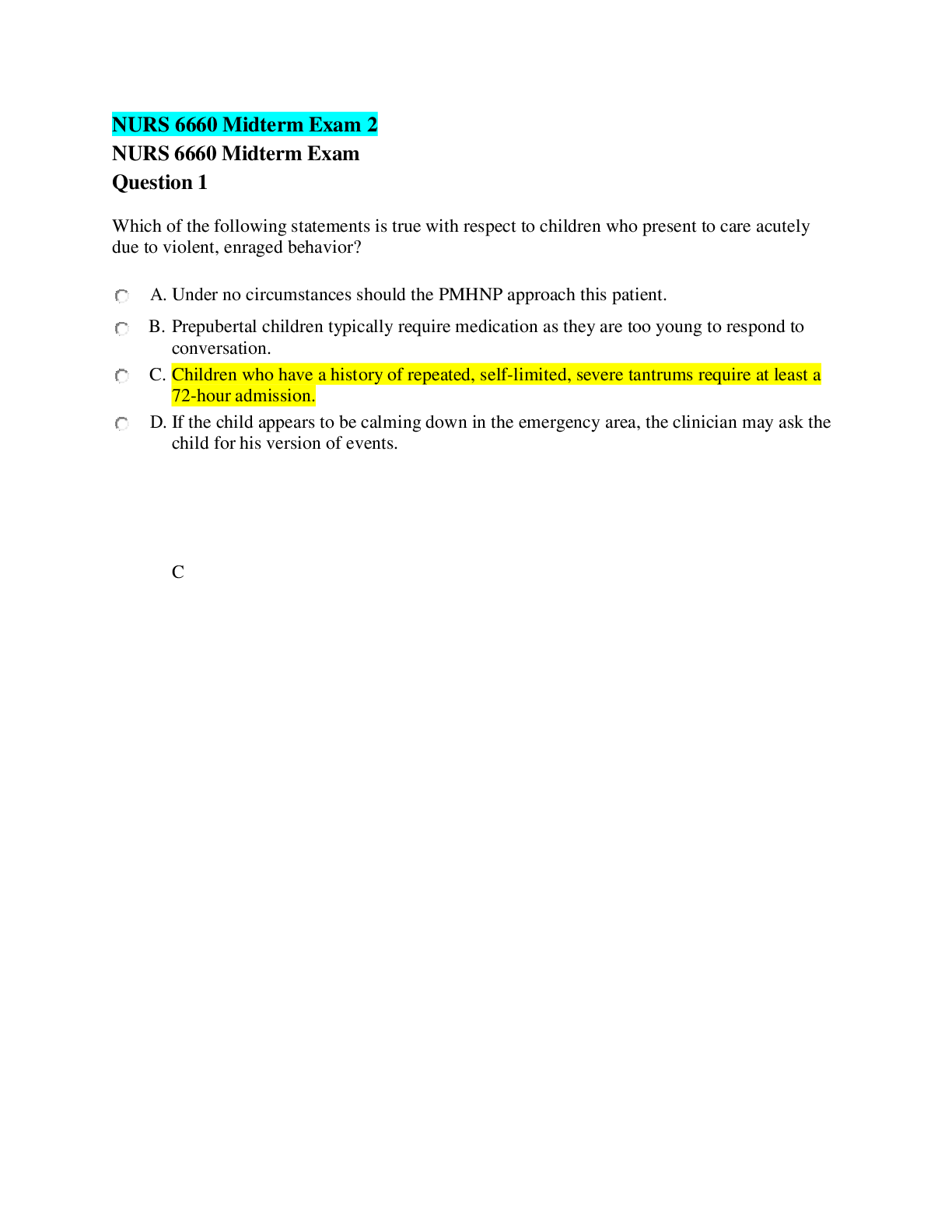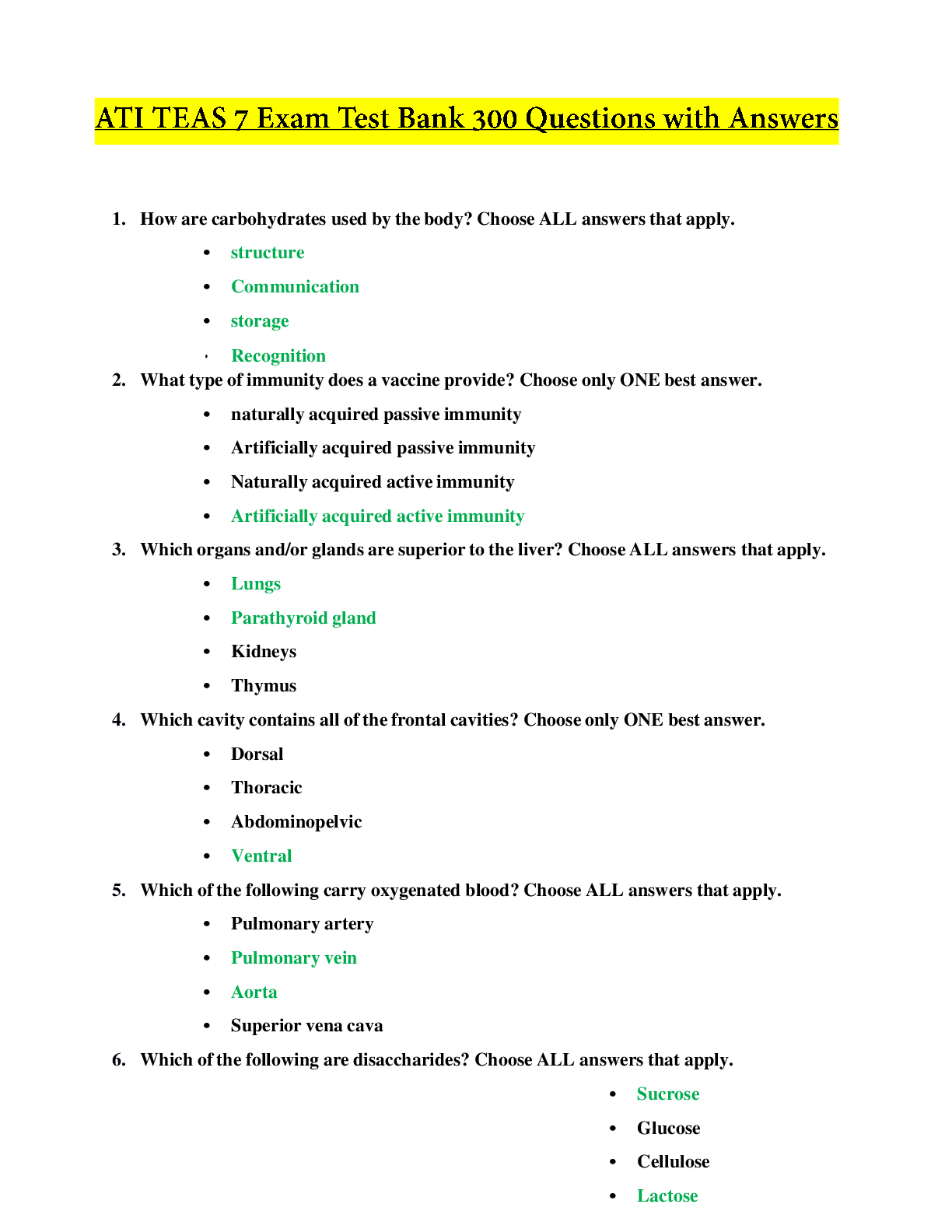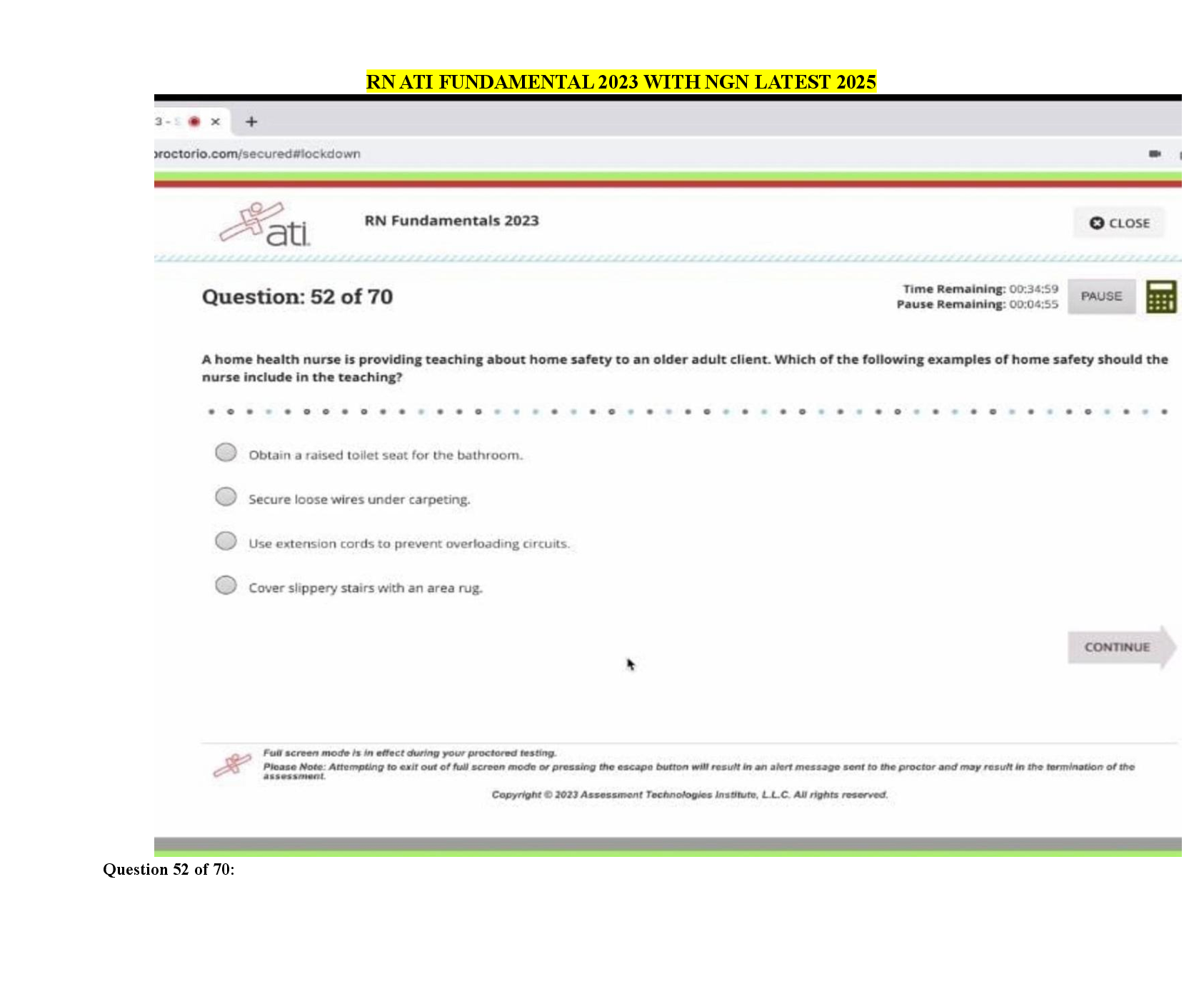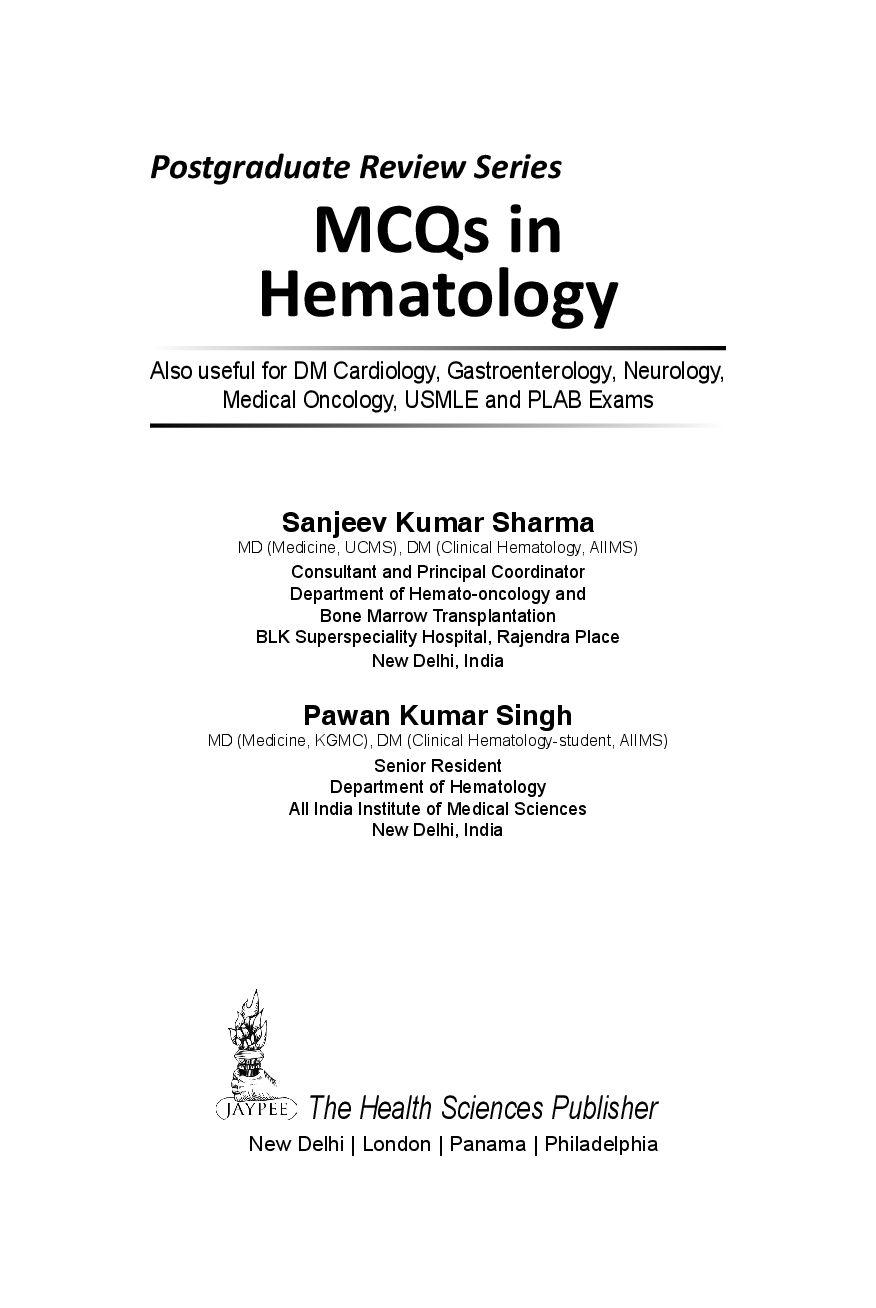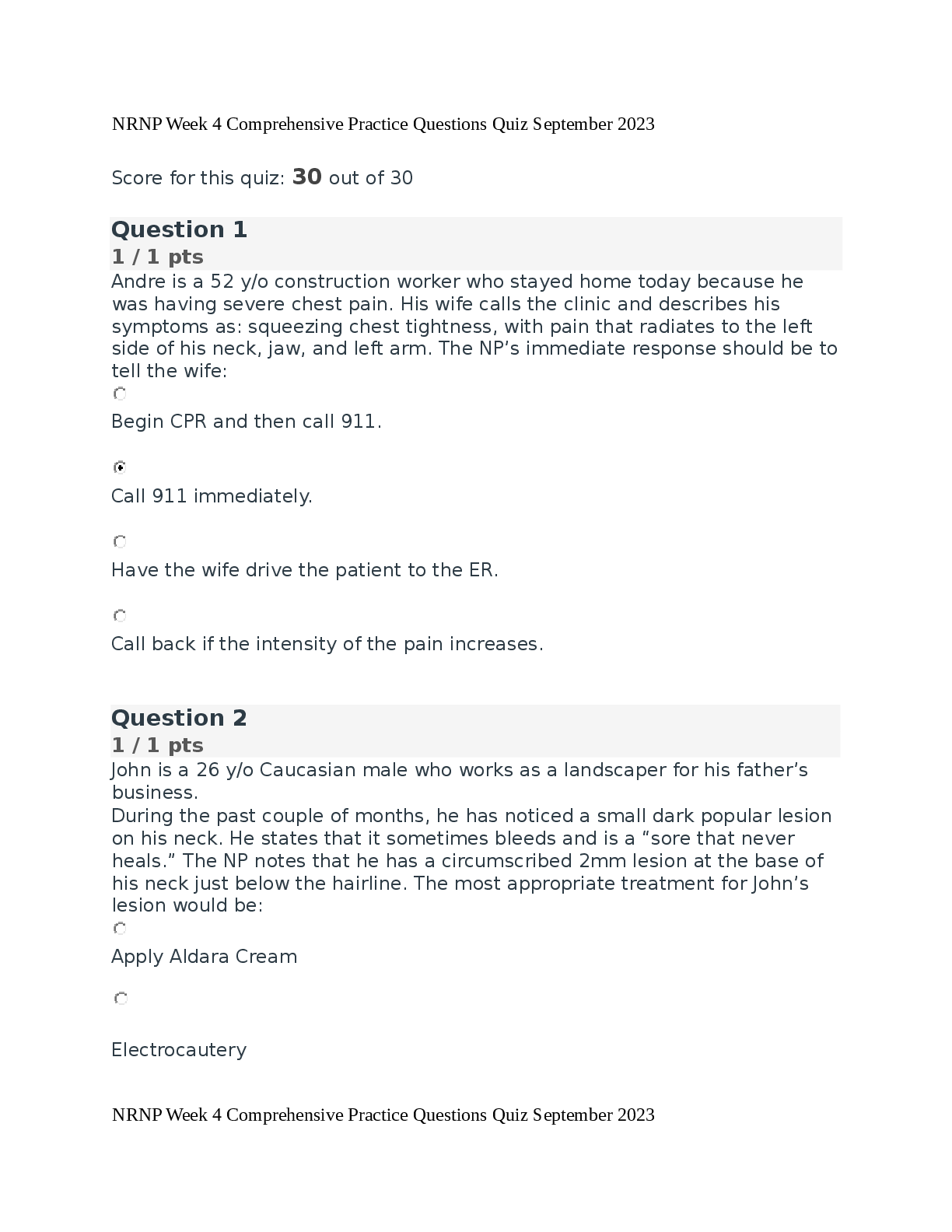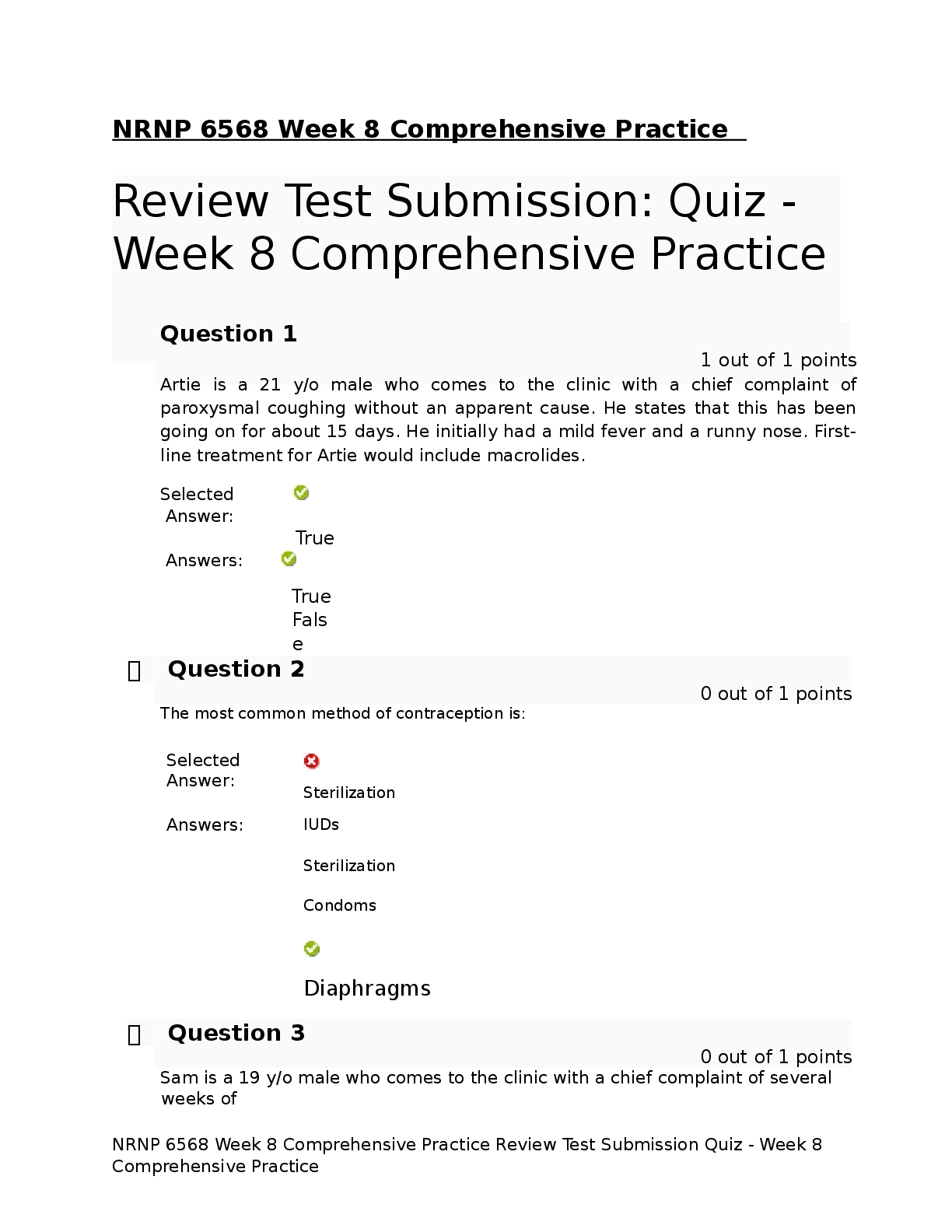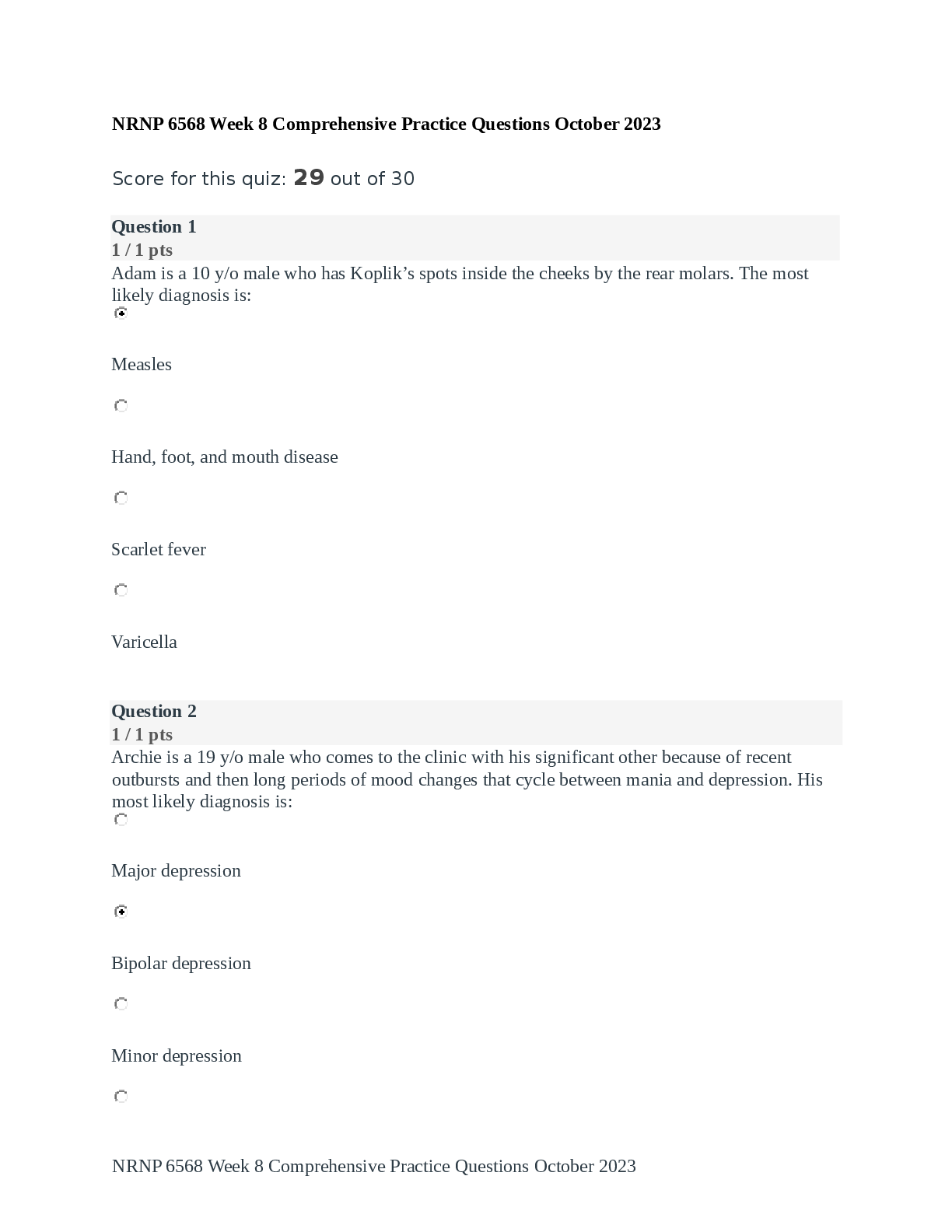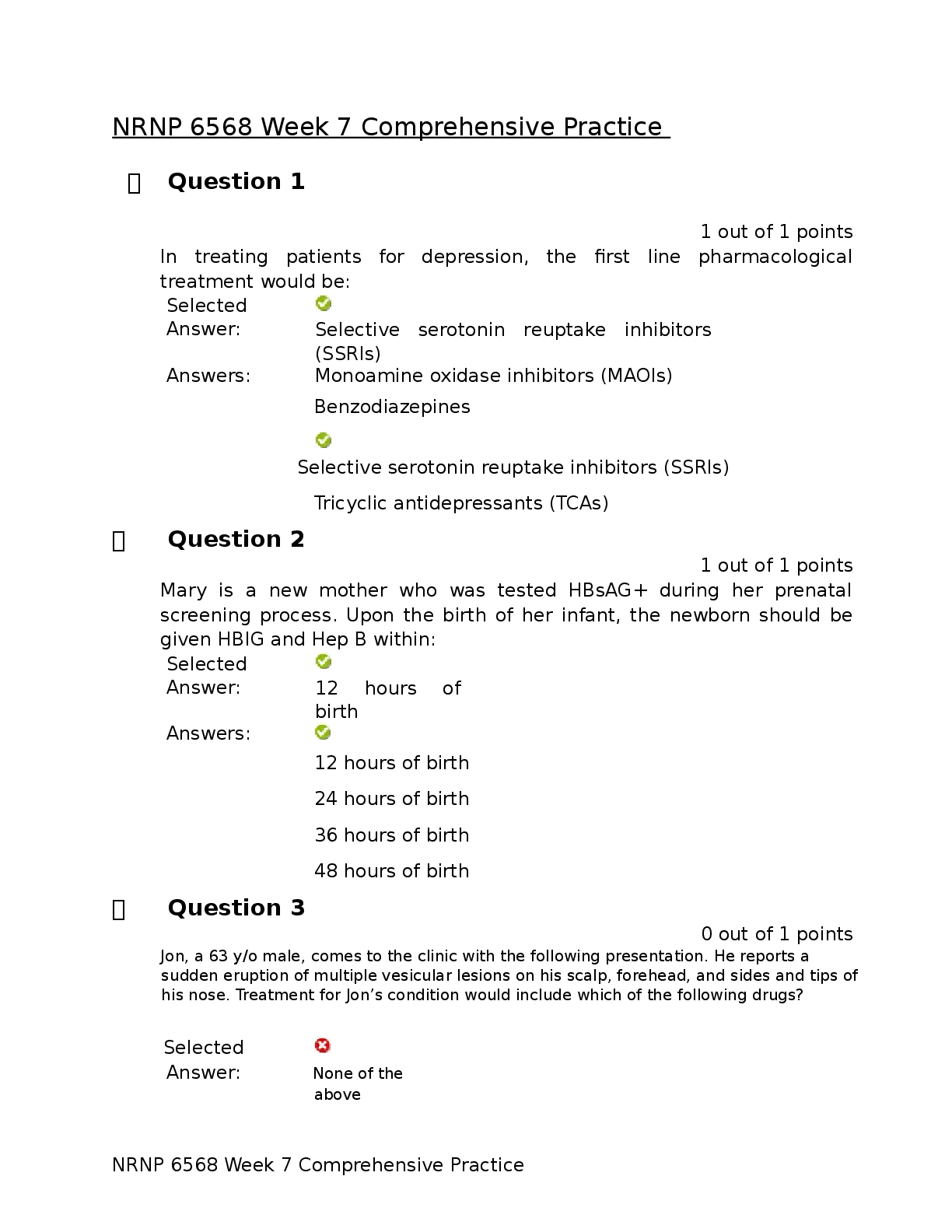Health Care > EXAMs > HLTH 4200 Final Exam 2 | Answers (Walden) Latest 2025 Study Guide | Already Graded A (All)
HLTH 4200 Final Exam 2 | Answers (Walden) Latest 2025 Study Guide | Already Graded A
Document Content and Description Below
HLTH 4200 Final Exam 2 Answers (Walden University) 1. Controlled clinical trials enable researchers to: 2. The purpose of double-blinding in clinical trials is to: 3. Randomize ... d, controlled clinical trials are used in the pharmaceutical industry to do all of the following EXCEPT: 4. To test the efficacy of a health education program in reducing the risk of food-borne and water-borne diseases, two Peruvian villages were given an intensive health education program. At the end of two years, the incidence rates of important water-borne and food-borne diseases in these villages were compared with those in two similar control villages without any education program. This is an example of what type of study? 5. To test the efficacy of vitamin C in preventing colds, army recruits are randomly assigned to one of two groups: one group received 500 mg of vitamin C daily; another group received 500 mg of a placebo daily. Both groups are followed to determine the number and severity of subsequent colds. This is an example of what type of study? 6. A study was carried out to determine whether phenylbutazone (PB) treatment is a risk factor for the development of neutropenia. The medical records of 300 children (150 who had neutropenia and 150 who did not have neutropenia) were investigated. One hundred of the children with neutropenia had been treated with PB in the past, while 70 children without neutropenia had been treated with PB in the past. What type of study is this? 7. Researchers collected baseline information on oral contraceptive use from a group of female college seniors from a large university. Each year for the next twenty years the women were followed up with to determine whether or not the participants had developed any of several conditions. What type of study is this? 8. Over the past two years efforts were made to identify and determine the mortality and morbidity experience of several thousand military personnel who were stationed in the Persian Gulf and elsewhere in Europe in 1991. What type of study is this? 9. All of the following are types of bias (systematic error) in epidemiological studies EXCEPT: 10. The strategy that is not aimed at reducing selection bias is: 11. For a variable to be a confounder, it must be: 12. Approaches to handling a confounding variable in the design and/or analysis of a study include all of the following EXCEPT: 13. In the Bradford Hill Criteria for Causation, _______ is defined by the size of the association as measured by appropriate statistical tests. 14. All of the following should be considered when assessing causality EXCEPT: 15. When assessing the results of a study, what are the possible explanations for the observed results? 16. Which of the following is a true statement? 17. If a statistical test indicates a nonsignificant difference, then the result is due to chance alone. 18. Confidence intervals are influenced by the: 19. Suppose that you are in charge of evaluating a newly developed screening test compared to a gold standard. You test 1,000 individuals. Of the 300 who test positive with the gold standard, 285 of them also test positive with the new screening test. Of the 700 who test negative with the gold standard, 7 of them test positive with the new screening test. What is the sensitivity of your new screening test? 20. Suppose that you are in charge of evaluating a newly developed screening test compared to a gold standard. You test 1,000 individuals. Of the 300 who test positive with the gold standard, 285 of them also test positive with the new screening test. Of the 700 who test negative with the gold standard, 7 of them test positive with the new screening test. What is the specificity of your new screening test? 21. Which of the following is an example of tertiary prevention? 22. A screening examination was performed on 250 persons for Factor X, which is found in disease Y. A definitive diagnosis for disease Y among the 250 persons had been obtained previously. The results are charted below: 23. A screening examination was performed on 250 persons for Factor X, which is found in disease Y. A definitive diagnosis for disease Y among the 250 persons had been obtained previously. The results are charted below: 24. A screening examination was performed on 250 persons for Factor X, which is found in disease Y. A definitive diagnosis for disease Y among the 250 persons had been obtained previously. The results are charted below: 25. A screening examination was performed on 250 persons for Factor X, which is found in disease Y. A definitive diagnosis for disease Y among the 250 persons had been obtained previously. The results are charted below: 26. If the survival of cases detected through a screening program is longer simply because the disease was detected earlier in its natural history, ________ bias would have occurred. 27. If the individuals who participate in a screening program have a different probability of disease from those who do not participate (for example, they may be healthier or sicker; older or younger; employed or not employed), ________ bias would have occurred [Show More]
Last updated: 1 year ago
Preview 1 out of 9 pages

Loading document previews ...
Buy this document to get the full access instantly
Instant Download Access after purchase
Buy NowInstant download
We Accept:

Reviews( 0 )
$10.50
Can't find what you want? Try our AI powered Search
Document information
Connected school, study & course
About the document
Uploaded On
Oct 08, 2019
Number of pages
9
Written in
All
Additional information
This document has been written for:
Uploaded
Oct 08, 2019
Downloads
0
Views
239



